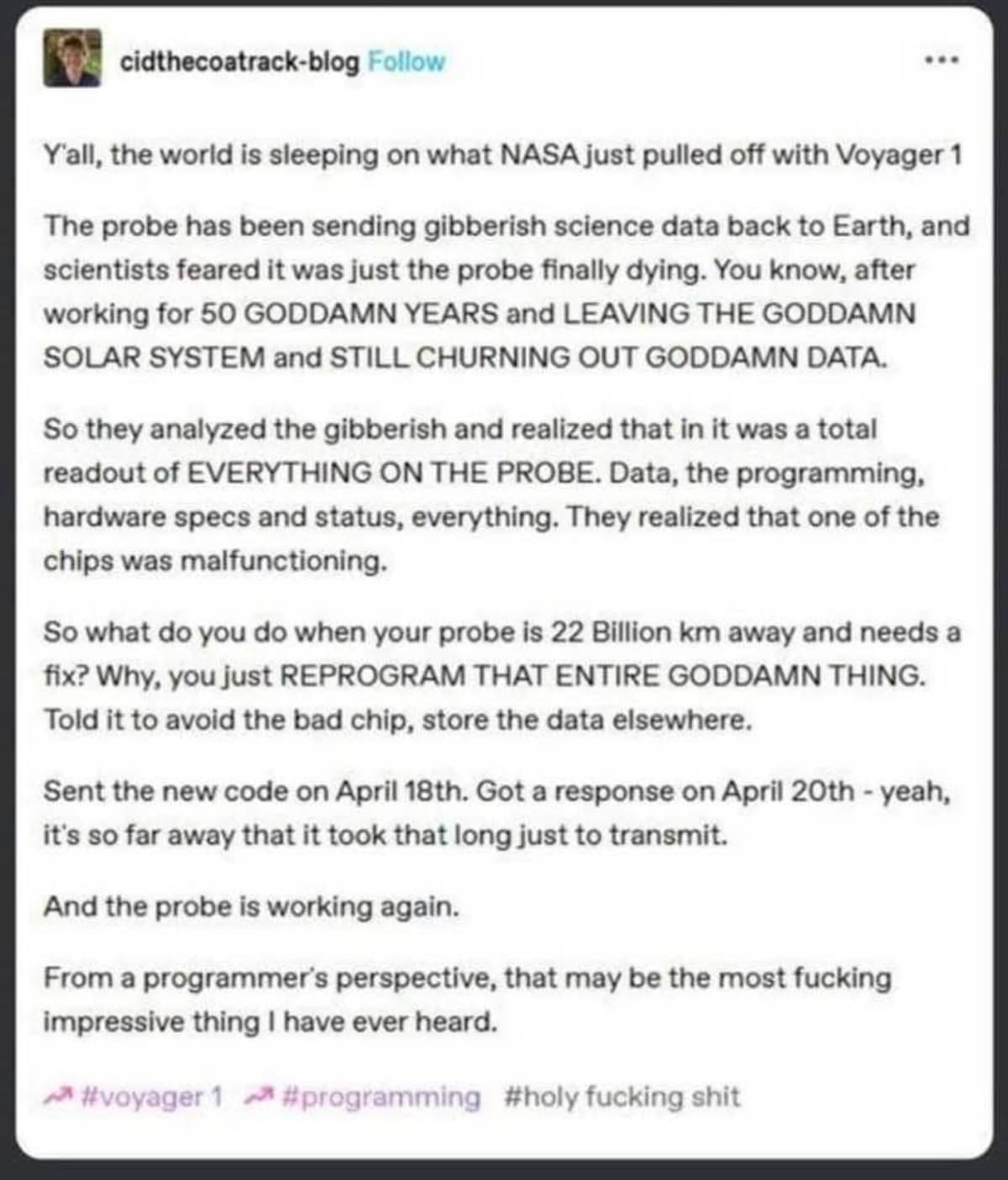this post was submitted on 06 May 2024
2462 points (99.3% liked)
Science Memes
10988 readers
1952 users here now
Welcome to c/science_memes @ Mander.xyz!
A place for majestic STEMLORD peacocking, as well as memes about the realities of working in a lab.

Rules
- Don't throw mud. Behave like an intellectual and remember the human.
- Keep it rooted (on topic).
- No spam.
- Infographics welcome, get schooled.
This is a science community. We use the Dawkins definition of meme.
Research Committee
Other Mander Communities
Science and Research
Biology and Life Sciences
- [email protected]
- [email protected]
- [email protected]
- [email protected]
- [email protected]
- [email protected]
- [email protected]
- [email protected]
- [email protected]
- [email protected]
- [email protected]
- [email protected]
- [email protected]
- [email protected]
- [email protected]
- [email protected]
- [email protected]
- [email protected]
- [email protected]
- [email protected]
- [email protected]
- [email protected]
- [email protected]
- [email protected]
- !reptiles and [email protected]
Physical Sciences
- [email protected]
- [email protected]
- [email protected]
- [email protected]
- [email protected]
- [email protected]
- [email protected]
- [email protected]
- [email protected]
Humanities and Social Sciences
Practical and Applied Sciences
- !exercise-and [email protected]
- [email protected]
- !self [email protected]
- [email protected]
- [email protected]
- [email protected]
Memes
Miscellaneous
founded 2 years ago
MODERATORS
you are viewing a single comment's thread
view the rest of the comments
view the rest of the comments

Finally I can put some take into this. I've worked in memory testing for years and I'll tell you that it's actually pretty expected for a memory cell to fail after some time. So much so that what we typically do is build in redundancy into the memory cells. We add more memory cells than we might activate at any given time. When shit goes awry, we can reprogram the memory controller to remap the used memory cells so that the bad cells are mapped out and unused ones are mapped in. We don't probe memory cells typically unless we're doing some type of in depth failure analysis. usually we just run a series of algorithms that test each cell and identify which ones aren't responding correctly, then map those out.
None of this is to diminish the engineering challenges that they faced, just to help give an appreciation for the technical mechanisms we've improved over the last few decades